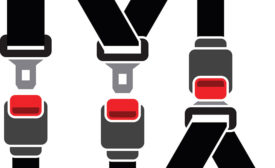Dr John Kello
Dr. John Kello is professor of industrial-organizational psychology at Davidson College, and president of the organization development consulting firm J.E. Kello & Associates, Inc. John’s work centers on the implementation of the “High-Performance Organization” model in a variety of work settings. He can be reached at (704) 894-2024; jokello@davidson.edu.
ARTICLES
Positive Safety Culture
Burnout raises the risks
What’s your workload? How much control do you have?
September 12, 2019
High-Reliability Operations emphasize error management
A system of checks & balances
August 1, 2019
How I quickly assess safety cultures
Look at primary, secondary & misleading markers
October 29, 2018
Business models change with the times
And so does the role of safety and health professionals
October 1, 2016
Become a Leader in Safety Culture
Build your knowledge with ISHN, covering key safety, health and industrial hygiene news, products, and trends.
JOIN TODAYCopyright ©2025. All Rights Reserved BNP Media.
Design, CMS, Hosting & Web Development :: ePublishing










